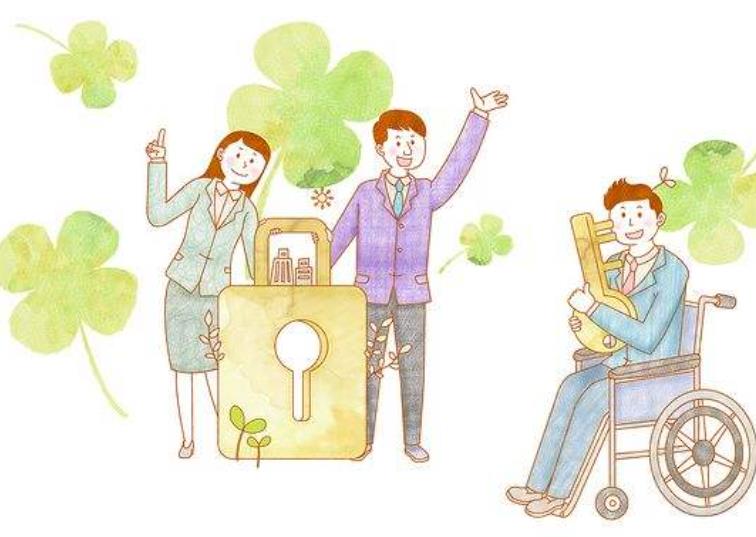|
本文是心理学专业的Essay范例,题目是“5 Stages of Human Development(人类发展的5个阶段)”,社会、身体、情感、认知和文化的变化贯穿个人的一生。开发的一般顺序是固定的,但是开发的速度有时会因许多因素而有所不同。有一些关键的需求必须得到满足,如果没有得到满足,就会产生后果。 Social, physical, emotional, cognitive and cultural changes take place throughout the lifespan of an individual. There is a general sequence of development which is fixed, however the rate of development can sometimes differ depending on many factors. There are key needs which must be met and consequences if they are not.
Stage of Life Cycle: Infancy 0-5 Years生命周期阶段:婴儿0-5岁 Attachment Theory-Bowlby At this stage the infant is highly dependant. From the moment a child is born they begin to develop physically. The baby’s senses begin to develop; he is able to focus on objects, learns to hold the weight of his head up and attempts to pull himself up holding onto the edge of a chair or table. He then learns to crawl and with lots of encouragement finally learns to walk. Through interaction with parents, family, friends and other children they learn to socialise, play and communicate. With much needed stimulation and play, babies and young children learn. They begin to recognise and memorise faces, characters, objects and songs. With communication, consistency and encouragement they learn speech and are taught routines and behaviour, such as bed-time and toilet training. To develop emotionally, a baby needs love, affection and consistent care. 在这个阶段,婴儿高度依赖。从孩子出生那一刻起,他们的身体就开始发育。婴儿的感官开始发育;他能够把注意力集中在物体上,学会抬起头的重量,并试图抓住椅子或桌子的边缘把自己拉起来。然后他学会了爬行,在许多人的鼓励下,他终于学会了走路。通过与父母、家人、朋友和其他孩子的互动,他们学会了社交、玩耍和交流。婴儿和幼儿在需要的刺激和玩耍下学习。他们开始识别和记忆面孔、人物、物体和歌曲。通过沟通、坚持和鼓励,他们学会说话,并被教导日常生活和行为,如就寝时间和如厕训练。婴儿要发展情感,需要爱、关怀和始终如一的照顾。 Bowlby’s attachment theory, as later complimented by Rutter, suggests that from birth a child requires a consistent attachment and bonding with at least one main caregiver. With a sense of safety, belonging and being cared for unconditionally the child learns trust and views the world as a safe place to be. For this reason it is important to avoid broken attachments. If the child’s parents are uncaring, unreliable, are inconsistent with their care or if circumstances cause the attachment to be broken completely, the child may be unable to develop to their full potential. Without an adequate, loving attachment the infant may not be able to develop a loving relationship in future and without a trusting relationship with the main caregiver, they will develop mistrust. They may become apprehensive, withdrawn and suspicious around people.
Stage of Life Cycle: Childhood 5-12 years生命周期阶段:童年5-12岁 8 stages of Identity; Initiative v Guilt-Erikson As the child reaches school age they have increasing physical independence. They now begin to learn new skills such as running, skipping, ball games and cycling. They have progressed socially and have the ability to choose their own friends, find their own interests and make their own decisions about which activities they take part in. They begin to develop an understanding of others needs and wants and learn to share and take turns. They can begin to develop emotional attachments to individuals other than family members which can develop if stimulated. Cognitively the child begins school education and begins to develop an understanding of authority and following rules. 当孩子达到学龄时,他们在身体上越来越独立。他们现在开始学习新的技能,如跑步、跳绳、球类运动和骑自行车。他们在社会上取得了进步,有能力选择自己的朋友,找到自己的兴趣,并对参加什么活动做出自己的决定。他们开始理解他人的需求和欲望,并学会分享和轮流分享。他们会开始对家庭成员以外的个人产生情感依恋,如果受到刺激,这种情感依恋就会产生。从认知上来说,孩子开始接受学校教育,开始发展对权威的理解和遵守规则。
At this stage of a child’s development they should be able to learn initiative without taking on too much guilt. Initiative means they should be allowed a certain amount of responsibility and the freedom to learn new skills; they can only achieve this by the parents allowing and encouraging their child to try out ideas and to allow them to use their imagination. The child must not be treated to feel too much guilt over their behaviour or feel ridiculed; this can lead them to become over sensitive and they can feel guilty about their feelings. On the other hand too much initiative and too little guilt can create a ruthless individual; they may not contemplate or care about the consequences of their actions.
Erikson also states a child must develop a capacity for industry without excessive inferiority. The child must learn to understand the difference between imagination and reality with the guidance of parents and teachers. The child should learn the feeling of success and be praised and encouraged, without this they may develop an inferiority complex; they may become scared of failure and not able to attempt and learn new skills. 埃里克森还指出,孩子必须培养勤奋的能力,而不能过分自卑。孩子必须在家长和老师的指导下学会理解想象和现实的区别。孩子应该学会成功的感觉,得到表扬和鼓励,如果没有这些,他们可能会发展自卑情结;他们可能会害怕失败,无法尝试和学习新的技能。
Stage of Life Cycle: Adolescence 13-20 years生命周期阶段:13-20岁的青春期 8 Stages of Identity; Identity v Role Confusion/Self Concept-Carl Rogers During adolescence the individual goes through a rapid growth spurt. Puberty begins and many developmental changes take place; boys begin to develop more defined muscle tone, start to grow hair over their body and their voice breaks and becomes deeper; girls become more curvaceous and they begin their menstrual period-both sexes become extremely hormonal which can lead to mood swings affecting their social and emotional life. They may be concerned that they are not developing as quickly as their peers causing emotional stress. Teens begin to develop and explore their personality and self image. Dependant on their culture they may develop physical relationships and experiment with drugs and alcohol. They experience and develop new social skills as they attend higher education and may leave the family home to attend college or university. The brain continues to develop until late adolescence. Cognitively this can be a very turbulent time with the pressure of exams and choosing their career. 在青春期,个体经历一个快速的生长突增期。青春期开始,许多发育变化发生;男孩们开始发展更明确的肌肉张力,开始在他们的身体上长出毛发,他们的声音变弱,变得低沉;女孩的曲线变得更加丰满,她们的月经期也开始了——男女都变得荷尔蒙分泌旺盛,这会导致情绪波动,影响她们的社交和情绪生活。他们可能会担心自己没有同龄人发展得快,从而造成情绪压力。青少年开始发展和探索他们的个性和自我形象。依赖于他们的文化,他们可能会发展身体关系,并接触毒品和酒精。他们在接受高等教育的过程中体验和发展新的社会技能,也可能离开家去上大学。大脑持续发育直到青春期后期。从认知上来说,这可能是一个非常动荡的时期,伴随着考试和择业的压力。
As adolescents go through new life experiences and learn to deal with their emotions, they begin to take responsibility for themselves, reflect on their experience of life so far and create their own identity. Teens often rebel against the authority which has governed them up until this point; they break the rules and resist against their parent’s wishes. Their behaviour and attitudes change, they experiment with style and clothing and even begin to speak differently as they struggle to find their true self. They have a need to discover their own identity and to been seen in a positive way by others. Erikson’s theory states that the individual must discover his own identity and without the freedom to do so may struggle to fit in and socialise. If this development is not made, for example if adults in the adolescent’s life do not allow them the freedom to express themselves, they may find it difficult to take on responsibilities and develop a sense of right from wrong. Should the parents push them to conform to their views; the individual will experience role confusion. 当青少年经历新的生活经历并学会处理他们的情绪时,他们开始为自己负责,反思他们迄今为止的生活经历并创造他们自己的身份。青少年经常反抗统治他们到现在为止的权威;他们打破规则,反抗父母的意愿。他们的行为和态度发生了变化,在努力寻找真实自我的过程中,他们尝试着改变风格和服装,甚至开始用不同的方式说话。他们需要发现自己的身份,并以积极的方式被他人看到。埃里克森的理论认为,个人必须发现自己的身份,如果没有这样做的自由,可能会难以融入社会。如果这种发展不进行,例如,如果成年人在青少年的生活中不允许他们自由表达自己,他们可能会发现很难承担责任和培养是非感。如果父母强迫他们遵从自己的观点;个体将经历角色混淆。
Stage of Life Cycle: Adulthood 21-65 years生命周期阶段:成年21-65岁 Hierarchy of needs-Maslow As the individual reaches young adulthood, they reach their peak physical fitness, have an increase in stamina and should have developed a balance of good health and lifestyle. They may have their own children and have begun to settle down. They have generally decided and have settled down into their chosen field of profession and work to develop and improve their education and skills. They now take on many more responsibilities such as a mortgage, providing a stable and secure base for their family or they may experience stress within the workplace. Emotionally they may have experience of death and bereavement. They have more intimate relationships and may decide to marry; their role within the family changes and they begin to build social networks. 当个体进入青年期时,他们的身体素质达到顶峰,耐力增强,应该在良好的健康和生活方式之间取得平衡。他们可能有了自己的孩子,开始安定下来。他们一般已经决定并定居在他们所选择的专业领域和工作中,以发展和提高他们的教育和技能。他们现在承担了更多的责任,比如抵押贷款,为他们的家庭提供一个稳定和安全的基础,或者他们可能会在工作中经历压力。情感上,他们可能会经历死亡和丧亲之痛。他们有更亲密的关系,并可能决定结婚;他们在家庭中的角色发生了变化,他们开始建立社交网络。
According to Maslow, to achieve fulfilment an individual has key needs which must be met in order to reach their full potential, this is know as a ‘hierarchy of needs’. The bottom of the pyramid shows physiological needs such as shelter, food, warmth, stimulation and rest. The next level states safety needs which are required; protection from disease and illness. Maslow states that in order to move up the pyramid, each stage of requirements must be met. For example, without food and shelter an individual cannot be safe against disease and in turn cannot move up to the next step of the pyramid which is love and belongingness, followed by self-esteem. In adult life in our culture it is expected that an individual will be provided with their physiological needs and can live in safety. If they do not receive the love and affection they need; trust and acceptance and a feeling of belongingness they may not have self-esteem. Without respect and love from others they cannot respect and love themselves. Stage of Life Cycle: Older Adulthood 65+ years生命周期阶段:老年期65岁以上 Hierarchy of needs-Maslow As the adult enters into the last stage of their life, they may begin to physically grow frail and can often suffer with mental illness. Older adults’ eyesight and hearing often begins to fail as they age. Socially the older generation tend to follow other interests and after retirement have time to lead a full social life. However, the older generation can become more isolated due to family issues or health reasons such as hearing or sight difficulties. Emotionally they can become withdrawn feeling themselves as a burden to their society, family and friends. They may begin to contemplate their lives and have negative feelings such as regret or guilt; however they may feel fulfilled, proud of their accomplishments and their family. An older adult has wisdom and experience although they may find it difficult to grasp and understand new technology and develop new skills. These disabilities are often due to ill health or memory loss. 随着成人进入生命的最后阶段,他们的身体可能会开始变得虚弱,并经常遭受精神疾病的折磨。老年人的视力和听力往往会随着年龄的增长而开始衰退。在社会上,老一辈人倾向于追随其他兴趣,退休后有时间过完整的社会生活。然而,由于家庭问题或听力或视力困难等健康原因,老一辈人可能会变得更加孤立。在情感上,他们会变得孤僻,觉得自己是社会、家庭和朋友的负担。他们可能会开始思考自己的生活,并产生后悔或内疚等负面情绪;然而,他们可能会感到满足,为他们的成就和他们的家庭感到自豪。老年人有智慧和经验,尽管他们可能会发现很难掌握和理解新技术和发展新的技能。这些残疾通常是由于健康状况不佳或记忆力丧失。
According to Maslow’s Hierarchy of Needs, at that top of the pyramid the individual has a need for esteem; self-esteem and the esteem they receive from others. They require a level of respect for themselves and from others; with the needs met they feel self confident and valuable. Without esteem they can feel inferior and worthless. If all the needs of the pyramid have been met, the older adult reaches self-actualisation; a feeling that they have lived a life of purpose. Without the other needs of the pyramid being met they may struggle to reach this level. 根据马斯洛需求层次理论,在金字塔的顶端,个人需要尊重;自尊和他们从别人那里得到的尊重。他们需要一定程度的尊重自己和他人;需求得到满足后,他们会感到自信和有价值。没有自尊,他们会感到自卑和毫无价值。如果金字塔的所有需求都得到了满足,老年人就能实现自我实现;一种他们活得有意义的感觉。如果不满足金字塔的其他需求,他们可能会努力达到这一水平。
留学生论文相关专业范文素材资料,尽在本网,可以随时查阅参考。本站也提供多国留学生课程作业写作指导服务,如有需要可咨询本平台。 |
 |
|||
| 网站地图 |



